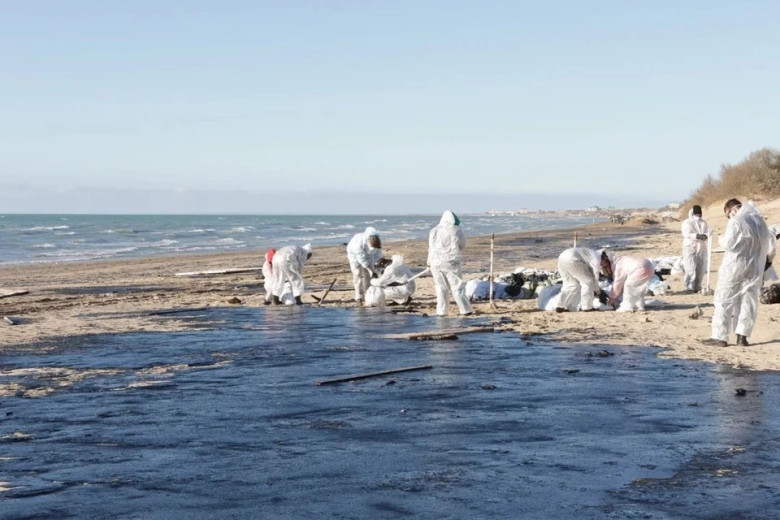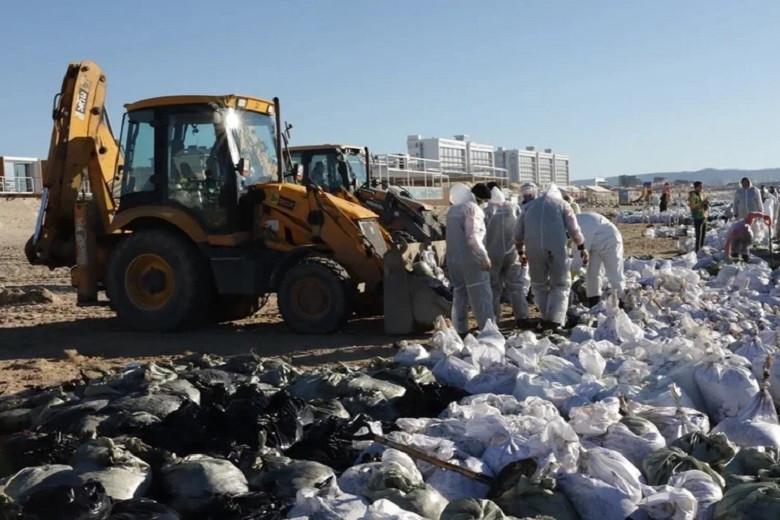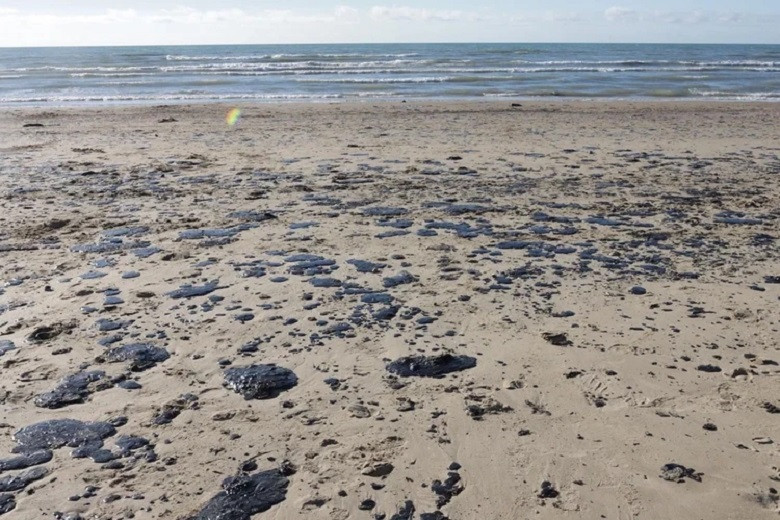The Cost of Care: A Tale of Resilience Amidst Environmental Crisis
The air was thick with an acrid scent that seemed to cling to the lungs, evidence of a disaster that had turned the azure waters of the Kerch Strait into a toxic expanse. The nightmare began with the wreck of a tanker, an ominous sign of negligence drifting through the cold currents of December. As fuel oil seeped into the environment, it began its grim journey—polluting not just the earth but the spirit of a community determined to fight back against the creeping tide of despair.

The residents of Krasnodar Krai awoke to grim news one morning. From the village of Veselovka in the Temryuk district to Blagoveshchenskaya in Anapa, blackened land awaited those conscientious enough to answer the call. The beauty of the coastline had been sacrificed on the altar of human error, but what emerged next was a spectacle of bravery and solidarity.
A Community Awakens
Day by day, more than six thousand people gathered under the kaleidoscope of sun and sorrow. Schools, factories, families—each segment of society donned their makeshift uniforms; gray gloves, grimy boots, and brave faces. The operational headquarters of Krasnodar Krai reported remarkable figures: 4.2 thousand tons of oily soil from the coastal strip had been collected. Yet the numbers failed to encapsulate the spirit of the people wading through thick muck to reclaim their land.
With each passing day, more volunteers emerged. Entire towns rallied, families setting aside their daily struggles to join an unprecedented communal effort. It became a ritual: gather at dawn, load the trucks, and hit the shoreline to begin the labor-intensive task of cleaning. Rewards may have been few, but a sense of pride fueled their mission.
An Unforgiving Sea
The challenges were stark. Even with the sheer number of participants and 311 pieces of equipment deployed, the elements fought back. The sea had claimed its bounty, but its insidious shrouds of oil persisted, continuing to wash ashore. Monitoring groups worked tirelessly to track new pollution, creating a Sisyphean task that felt almost futile at times, but the community refused to yield. Each piece of reclaimed land became a symbol of hope, a testament to their collective strength.

As the sun dipped below the horizon, the cleanup workers found solace in each other’s company. They shared stories over soldier's porridge—nourishment that fueled both body and soul—and the camaraderie was palpable amid the grim circumstances. They were no longer merely residents of Krasnodar; they were defenders of nature, guardians against neglect.
Diving into the Depths of Despair
The operational headquarters highlighted the urgency of the situation. Divers and marine rescue experts garnered critical data, surveying the barnacle-encrusted wreck beneath the waves. The leak they uncovered posed another hurdle—the sinking tanker still held potential catastrophic risks if not contained urgently. Booms were hastily installed, but every ounce of optimism felt fragile against the backdrop of a marine disaster. Over 24 square kilometers of ocean needed immediate intervention, demanding a strategic response from experts and volunteers alike.
The price of ignorance had become clear, and the ocean—once a lifeline for the region—now loomed ominously, as though mocking human arrogance. Yet, for every grim discovery, there was flicker of hope; 10 tons of oil had been collected that very day alone, reassuring everyone that their efforts bore fruit.
Compassion in Crisis: Saving the Innocent
As much as the community’s plight weighed heavily on their hearts, another battle was unfolding—a silent cry for help from those unable to fight: the seabirds. The impact of the oil spill extended beyond the shorelines; it stifled life, poisoned habitats, and reverberated through ecosystems. Volunteers became acutely aware of the toll on wildlife, and so began another chapter of their immense undertaking.

With expertise and compassion, veterinarians stepped in to assist the feathered victims. Two hundred fifty-six birds were rescued from the clutches of fuel oil, prompting a wave of sympathy that seemed to bind the community even tighter together. While people labored in muck, they would often take breaks to save the innocent, nursing the fragile creatures back to health. Teams were organized to clean, medicate, and rehabilitate, transferring injured seagulls and ducks to safe havens like the Pelican animal rehabilitation center in Stavropol Territory. The ripple effect of their compassion was profound.
The efforts to save the birds were not just about cleaning oil off feathers; they represented a commitment to coexistence with nature. Every animal saved became a reminder that the repercussions of the tanker’s wreck transcended politics, negligence, and capitalism. It was a matter of survival—one that reached into the hearts of those who devoted their time and energy to make a difference.
Reflection in the Wake of Tragedy
As the days turned into nights and back into days again, optimism lingered, and frustration ebbed. The disaster was far from over, yet there was an undeniable transformation. The incident served as a chilling reminder of the fragility of life and environment, underscoring how easily human folly could undo the efforts of conservation and coexistence.

The spirit of Krasnodar Krai became woven into the very fabric of their coastline. By gathering together—despite their differences, despite their exhaustion—they found a deep, abiding strength. They fought against the pollution of their land, and they fought for the voiceless creatures caught in the crossfire. Through collective effort and unfathomable compassion, a community emerged transformed, bonded forever by their crusade against neglect and their fervent wish to heal both land and soul.
The cleanup was a stark reminder: nature is forgiving yet unforgiving in its own way, and the price of inaction is a heavy burden to bear. Through dedication and communal spirit, the people of Krasnodar Krai vowed to not only restore their coastline but also to redefine their relationship with their environment. In an age marked by crisis and negligence, they stood as a testament to the resilience of humanity, armed with nothing but purpose and the will to act.

















Comments
0 comment